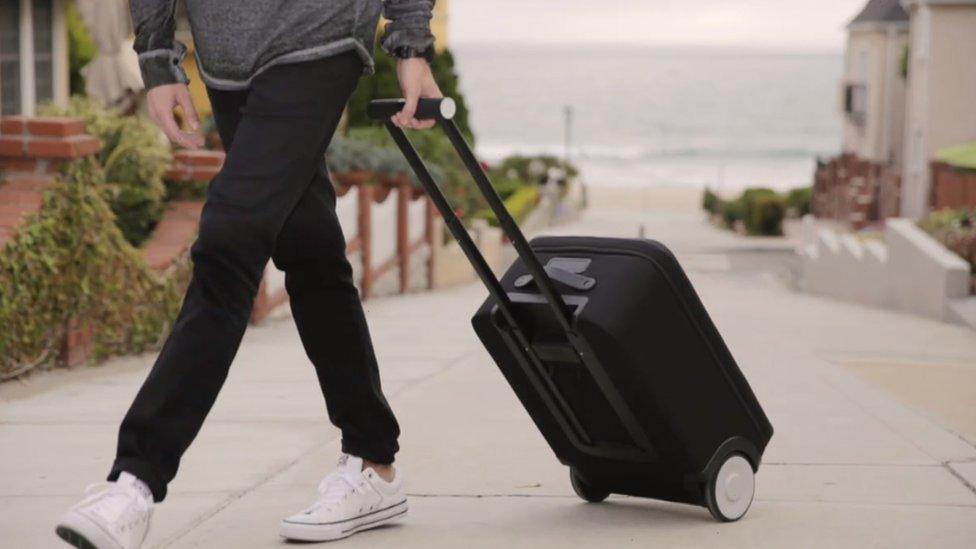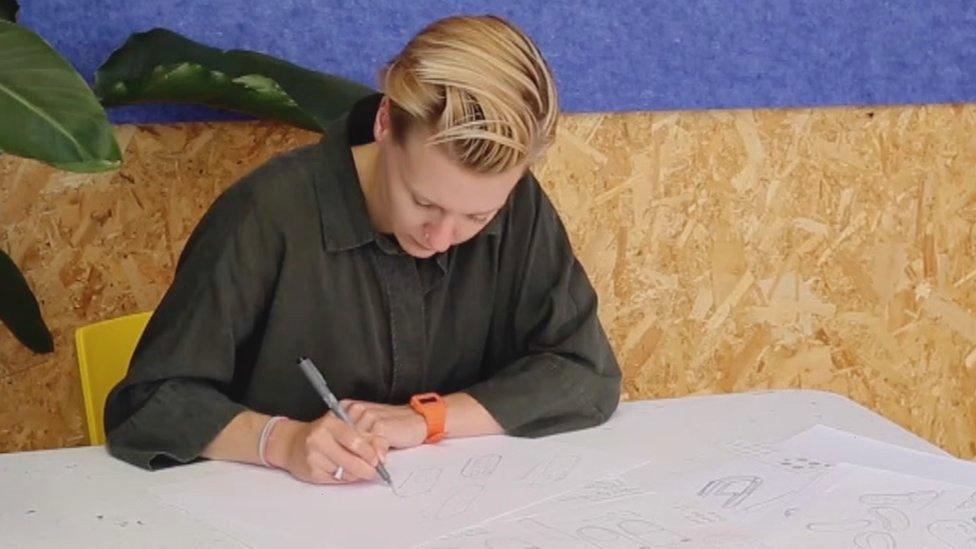CEO Secrets: Never leave planning until the last minute
- Published
'Never leave planning until the last minute'
"I love designing products, I studied it at university and I love doing it as a living," says Jo Barnard, CEO of industrial design consultancy Morrama.
But she says she got so wrapped up in seeing through the first product design job her firm was given that she forgot to secure any contracts to follow it, which brought her company close to shutting down.
Jo started Morrama six years ago. Based in Hackney in east London, it helps companies to design new products, from the concept stage through to commercial production. It has 10 members of staff and it works almost exclusively with start-ups.
"After about six months of picking up odd jobs here and there, we managed to land a project with an American client to design a suitcase," she recalls.
"The contract was more than enough to support the business for a year. I brought on two designers and an engineer to work with me to design the product."

Jo says she focussed solely on Morrama's suitcase contract - and not on what her firm would do afterwards
The project was so important that Jo decided she would head up the design team and work on it full time. However, her co-founder decided to leave Morrama shortly afterwards, so she also had to take on the extra responsibilities of managing its back-office operations and planning its future growth.
"I was left being the managing director, creative director and the project director while still trying to on-board three members of staff who had just started working for me," says Jo. "I threw myself into everything, but my main focus was to make the project work properly and deliver what we had set out to deliver."
But she had spent so much time on the project in hand that she had neglected another vital function of the CEO role - winning new orders for the firm.
"The company had been going for about sixteen months and people were saying 'Wow! the business seems to be thriving'. But the whole success of the business had been based on that one project, and then the project came to an end.
"You don't get paid after that, and there was nothing for the designers to do. I had completely forgotten what came next. We had two and a half months' of money left before we ran out, and that would be the end of Morrama."

"You have to put yourself out there, go to events and think about generating new leads," says Jo
Jo used a large part of the company's remaining cash to hire a new studio manager to help her drum up new business, and the company landed two more projects. She says the episode has taught her an important lesson about the role of a CEO.
"What needed to happen was to make sure that every potential lead that came in was carefully nurtured, and to put ourselves out there to make new leads. Those sorts of things, I've not been particularly good at - ever. But it doesn't matter if you're not good at it. You have to get on and do it.
"The main learning was that planning can never be left until the last minute. It's so, so important to know what comes next. You have to be thinking about that from the very beginning and not putting off those emails, not putting off following up on new business.
"You have to put yourself out there, go to events and think about generating those new leads.
"As soon as one job is over the next one has to be lined up, or else the pipeline stops, and the business is finished."